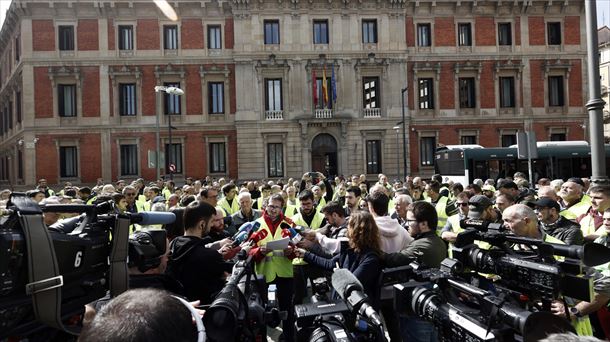50 Ukrainian refugees moved to Mariazell shortly after the outbreak of the war. After a year they take stock. How they were served, what jobs they’re looking for – and how long they want to stay.
Shortly after the outbreak of war in Ukraine, about 120 refugees arrived in Mariazell. Many moved on, almost 50, almost exclusively women with children, stayed here. Contact person number 1 for the refugees is Lajos Makai.
The “good soul” does not want to be photographed in front of the “crown” but remains discreetly in the background. Makai is from Transylvania, studied law in Hungary and has been working for the Benedictines in the pilgrimage town of Mariazell for 15 years. When we meet the Ukrainians Ina, Olessja and Natascha a little later on the square behind the community centre, where they have been living for about a year now, the tone is immediately trusting: “Hello Lajos, how are you?”
A year spent together with hardships, but also with joy and the many solutions to everyday problems, has brought together Ukrainians and contacts such as Makai in Mariazell. “Especially in the beginning, we were very busy making sure everyone could find a place where it would also work with pets, for example. With 47 people, there are 47 stories,” says Makai.
Despite the signs, the start of the war came as a surprise
Ina celebrated her birthday when the war started the next morning: “I was celebrating with friends, and when we woke up the next morning, it started! We did not expect that at all,” says Ina about February 24 last year.
Despite the Russian annexation of Crimea in February 2014, the outbreak of war came as a surprise to many. “Then our normal life continued, the rest was a political matter,” according to Natascha’s impressions. She has three children aged 8, 14 and 18, Olesja has two children aged 2 and 6.
Few sports facilities
Escaping and the situation abroad are difficult, especially for the little ones. They can go to school, but a few things are missing, such as sports opportunities. Many children are used to training and would like to swim. But there is no indoor swimming pool in Mariazell.
Medical care is a big problem. Especially in the first months of the stay, this was often requested and reimbursed by the Mariazell Health Center.
“For the first three months, an ambulance had to be called almost every evening. You noticed that as soon as people were alone at night and none of us were there, the real problems started,” says Makai. But: “All these medical incidents suddenly stopped overnight.”
Friends from college now in the military
In the beginning, a year ago, organization was almost everything: you needed the “blue card” (identification for refugees), microwave ovens, hotplates, children’s toys, laundry, hair dryers, food, medicines – and perfectly functioning internet access. Contact with family members back home is particularly important. Ina says that many of her friends from university are now in the military: “We are here and we can support them, they are fighting for our independence.”
Michael Staberl, Superior of Mariazell, describes mostly positive impressions: “The nice thing was that everything went very smoothly. The people were grateful, there were immediate good contacts, but no violence. It was always incredibly solidarity, peaceful and friendly.”
I hope to return soon
Only the range of German courses left much to be desired. “It is of course not so easy to find Ukrainian-German teachers directly, but more could have been done. People should always be able to speak German. But then you can’t say: there are translation options in the computer,” says Staberl.
As always since the beginning of the war, the hope of an early return to Ukraine is the positive force in the lives of Ukrainian women. About half of the 47 refugees have so far found work and a new home. Another 20 live in the community center. Ina works as a sales manager in the hotel “3 Hasen”, and it goes without saying that Natascha also takes a job and learns German.
And amazingly: none of the three women is angry with “the Russians”. One has cousins in and other family ties to Russia. The great hope is that the war will soon be over: “Because we just want to return to our homeland, which we have known since childhood,” says Ina.
Peter Bernthaler, Kronen Zeitung
Source: Krone
I am Wallace Jones, an experienced journalist. I specialize in writing for the world section of Today Times Live. With over a decade of experience, I have developed an eye for detail when it comes to reporting on local and global stories. My passion lies in uncovering the truth through my investigative skills and creating thought-provoking content that resonates with readers worldwide.



